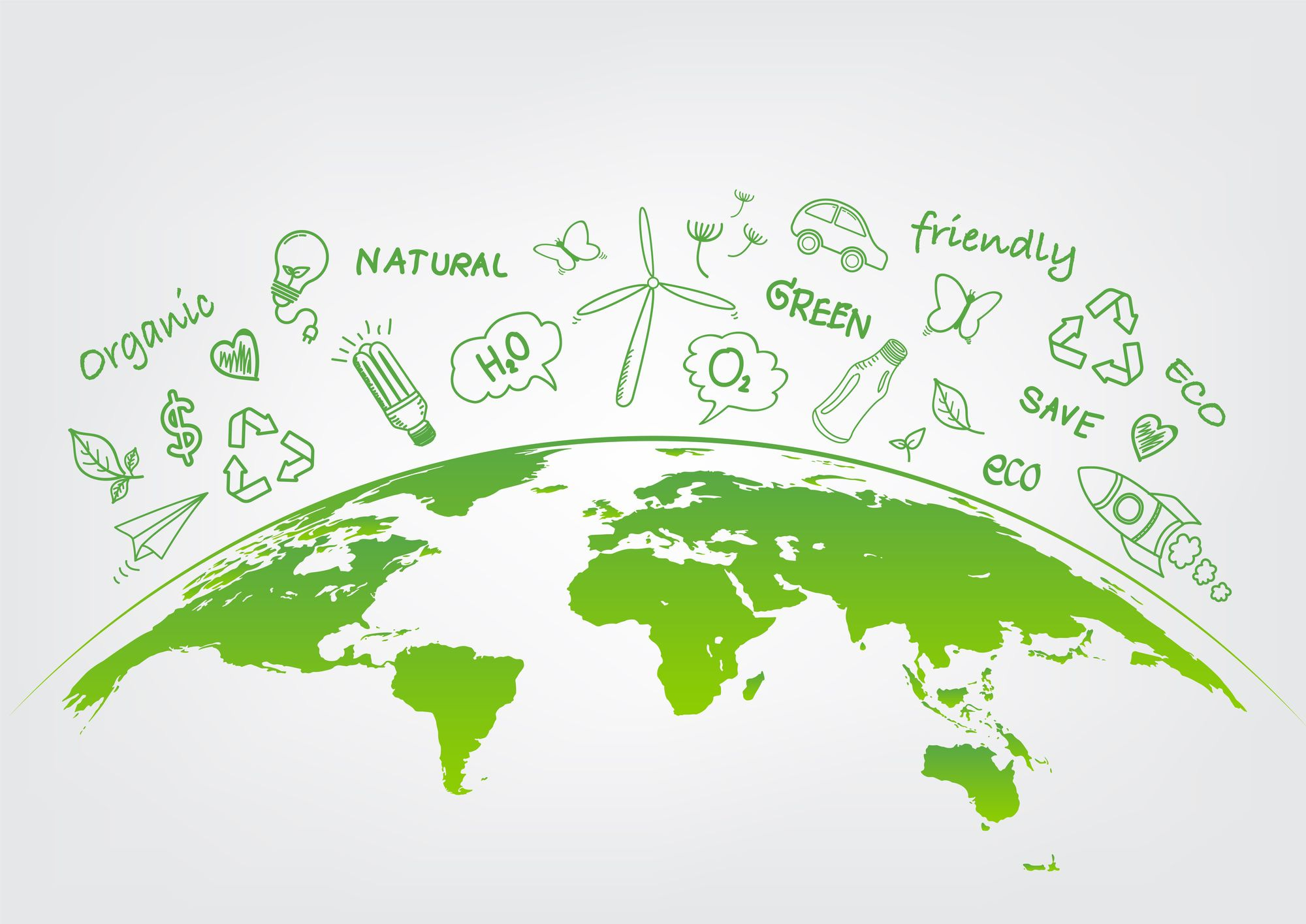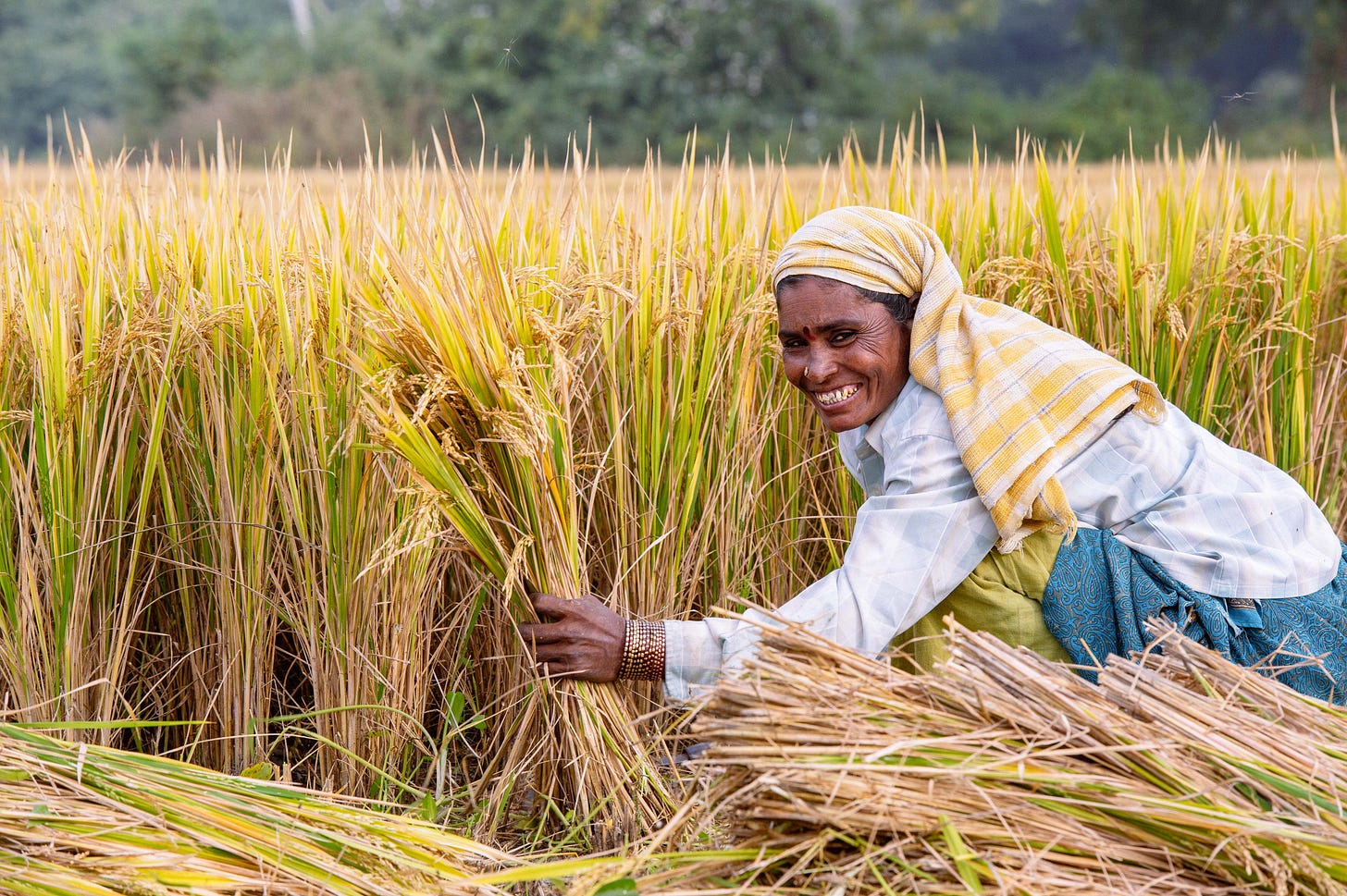Why sustainable development isn't
It is neither sustainable, nor is it development
As I mentioned in a previous article, there are four major schools of thought among Western experts on how poor nations can develop, there are four major schools of thought among Western experts on how poor nations can develop:
Economist school, who advise developing nations to establish good institutions and free markets
Foreign aid school, who urge wealthy nations to spend more on foreign aid to assist developing nations to get out of “poverty traps”.
Rights school, who believes that the poor in all nations need the same political freedoms that wealthy nations enjoy. Once the people have those rights, their nations can grow their way out of their poverty.
Sustainable development school that focuses heavily on renewable energy and less resource-intensive agriculture, transportation, and manufacturing.
In this article, I will compare the advice given by the “Sustainable development” school to what we have learned from how wealthy nations achieved their wealth in the past.
Most of the following is an excerpt from my second book Promoting Progress: A Radical New Agenda to Create Abundance for All. You can order my e-books at a discounted price at my website, or you can purchase full-price ebooks, paperback, or hardcovers on Amazon.
Other books in my “From Poverty to Progress” book series:
You can read other articles on developing nations, including:
Why developing nations are still poor:
What wealthy nations can do to help developing nations:
What developing nations can do to help themselves:
How developing nations can create competitive export industries
Why Developing nations need to create thriving export industries
What the Sustainable Development School believes
The fourth school of thought among Western development experts focuses on what they call “sustainable development.” Exactly what this term means is a little unclear, but it focuses quite heavily on:
renewable energy
less resource-intensive agriculture, transportation, and manufacturing
above all, avoiding the need to use fossil fuels
The sustainable development school believes that a greener version of the Industrial Revolution is possible and will lead to better outcomes for the natural environment and poor people in developing nations. They believe that more traditional paths to prosperity will seriously hurt the natural environment, so developing nations need to find a different path.
Sustainable Development Isn’t
Of all the four schools of thought, this is the one that I have the most problems with. While the school has some good ideas, their proposals are potentially quite dangerous for developing nations to follow.
The fundamental problem is that sustainable development:
Is not sustainable economically,
Nor will it lead to economic development.
Nor will it even lead to much improvement for the natural environment.
What is sustainable?
First of all, what does “sustainable” actually mean? How do we figure out whether a policy or practice is sustainable or not? Presumably, it requires some form of numeric calculation; but what is the formula to calculate sustainability? And what are we trying to sustain? Sustained for what timeframe?
The entire school is strangely silent on these key questions.
It is a political compromise
In practice, the word “sustainable” has no meaning other than “what Greens think is a good idea.” It feels like international development agencies have cobbled together a concept that connects what economists want with what environmentalists want. It is more a political compromise between two Western schools of thought than a real reform agenda.
International development agencies promote this agenda, not because they have any evidence that the policies work, but because it creates a stronger political alliance within wealthy nations to support aid and reform abroad. But what is good politics in wealthy nations is not necessarily good in triggering progress in developing nations.
There is no evidence, for example, that those who support sustainable development have done any of the mathematical calculations to determine if a specific policy or practice actually is sustainable.
Economics works faster than the environment
In practice, how sustainable a specific technology is far more dependent upon economics, not on its effect on the environment. Most technologies or new organizations collapse long before they butt up against any limits created by nature. And when they do so, all of society has a very strong incentive to create a better solution. That is exactly how the vast, decentralized problem-solving network works.
So the word “sustainable” appears to be nothing but a feel-good political buzzword. It may make activists feel good to say it, but it is not actionable, because no one is quite sure how to evaluate the long-term impact on the environment before technology has been implemented.
The time frame is too long
More to the point, why should poor nations care about whether the current practice can be sustained for 50 years? They have far more immediate problems, and they will be much more equipped to deal with those future problems if they are far wealthier. Within 50 years, technologies and practices are guaranteed to be very different regardless of their environmental consequences.
Sustainable development undermines the 5 Keys
If we leave aside where sustainable development overlaps the institutional reforms that economists want, we are left with two policies that seriously undermine two of the Five Keys to Progress. Since I believe that the Five Keys to Progress are the fundamental preconditions of human material progress, that is a big deal. Promoting long-term economic growth in developing nations should be about growing the Five Keys rather than undermining them.
Agricultural technologies are essential for developing nations
More specifically, the policies promoted by the Sustainable Development school undermine the first Key to Progress: A highly efficient food production and distribution system. This productivity enables societies to overcome geographical constraints to food production so that large numbers of people can focus on solving problems other than getting enough food to eat.
Those who promote sustainable development are hostile to essential agricultural technologies:
tractors
herbicides
nitrogen fertilizer
new GMO crops
irrigation
and many essential agricultural technologies and practices.
The Sustainable Development school is correct that, for some regions and individuals, these practices are not “appropriate.” But those practices should not be deemed inappropriate because they conflict with Green ideology or harm the environment. They should be deemed inappropriate when they do not lead to more productive agriculture.
Far too often, those who promote sustainable development romanticize traditional agricultural practices and show photos of happy farmers hand-tilling the soil. But let’s look at the reality of these practices: thousands of years of poverty at a level that we have difficulty imagining in modern Western societies.
More to the point, farmers in developing nations want the latest technologies. They are not always able to figure out how to pay for them, but that should be dealt with directly by helping them do so. I myself loan monthly to farmers in poor nations via Kiva.org. I suggest that you do the same.
It is not modern agricultural technologies that are “inappropriate.” It is the advice that environmentalists in the West who have never been farmers in their lives give to farmers in developing nations.
And deliberately trying to stop agricultural research by wealthy governments and corporations is just as bad. Of course, we should be concerned about the possible negative effects of modern agricultural technologies.
The single best way to help preserve the environment is to increase agricultural productivity. This will reduce the amount of land needed to grow food, and some of it can thus transition back into wild habitat.
This is not a utopian idea. The United States reached “peak farm acreage” around 1950. Farm acreage in the United States and other wealthy nations has been declining since that time. Globally we appear to have reached peak farm acreage sometime after 2000 (Our World in Data).
The key reason for this trend is the improving agricultural productivity caused by technological innovation. There is every reason to believe that further innovation can do the same in developing nations.
Fossil fuels are essential for developing nations
And the advice that those who promote Sustainable Development give in the field of energy is far more dangerous. The policies promoted by the Sustainable Development school undermine the fifth Key to Progress: Widespread use of fossil fuels.
The incredible energy density of fossil fuels injects vast amounts of useful energy into society enabling it to solve a wide variety of problems. Without this energy, life would return to the daily struggle for survival that dominated most of human history.
The Sustainable Development school opposes energy sources such as:
petroleum
coal
natural gas
nuclear and
hydroelectric
Wind and solar is not a viable option at scale
Instead, the Sustainable Development school push solar, wind, and other renewable energy sources. (By the way “renewable” is another buzzword that actually means “what Greens think is a good idea”).
Developing nations desperately need to rapidly increase their energy usage and build modern electrical grids. Thinking that solar and wind can do it by themselves is both naïve and dangerous.
I have already written articles about how difficult, if not impossible, for the United States to replace coal-burning power plants (only one source of fossil fuels) with wind and solar. And I have written another article about how much harder it would be in Asian nations. If the United States and the richest nations in Asia cannot do it, what are the remainder of developing nations to do?
Both solar and wind vary greatly by geography. Most developing nations have few regions where the wind is strong enough to be a cost-effective source of energy. Very few regions outside of the oceans, the Great Plains in the United States, the North Sea, Argentina, and interior China have wide-spread onshore wind resources.
And while tropical nations have plenty of sun and lower latitudes, they also have humid atmospheres that undermine solar efficiency. And what are nations with tropical forests to do? Do environmentalists propose that these trees be cut down to make way for acres of solar panels?
Don’t laugh; it is happening in wealthy nations, and it is terrible for the environment. Worse is biomass, which effectively burns forests in the name of helping the environment.
The fact that no wealthy nation has come even close to an electrical grid based 100% on solar and wind makes it seems extremely unlikely that developing nations can do so. And electricity accounts for only 18% of global carbon emissions, so even 100% success within the electrical grid does not get you very far.
The reality is that developing nations need fossil fuels, hydroelectric dams, and nuclear power just as much and even more than wealthy nations do. That is why those energy sources make up well over 80% of all energy use. And that is why the widespread usage of fossil fuels is one of the Five Keys to Progress.
Given that not one single nation has made the transition from poverty to progress based on the principles of sustainable development, I find this advice very dangerous for developing nations. Moreover, I am skeptical that following their policies will help the environment much either.
That is why all developing nations choose some blend of petroleum, coal, natural gas, nuclear, and hydroelectric to power their energy systems. None use solar or wind in sufficient abundance to come even close to a majority of their energy production. That should tell you something.
Telling wealthy nations that they should slow down economic growth in favor of saving the natural environment by eliminating fossil fuels is terrible advice. Telling developing nations that they should do so is a moral outrage.
Rich people might as well tell poor people to just accept poverty and learn to enjoy it. Fortunately, developing nations are having none of it. Sure they build solar and wind in some locations, but they do not even attempt to build them at a scale large enough so that they do not need widespread usage of fossil fuels.
Most of the following is an excerpt from my second book Promoting Progress: A Radical New Agenda to Create Abundance for All. You can order my e-books at a discounted price at my website, or you can purchase full-price ebooks, paperback, or hardcovers on Amazon.
Other books in my “From Poverty to Progress” book series:
You can read other articles on developing nations, including:
Why developing nations are still poor:
What wealthy nations can do to help developing nations:
What developing nations can do to help themselves:












